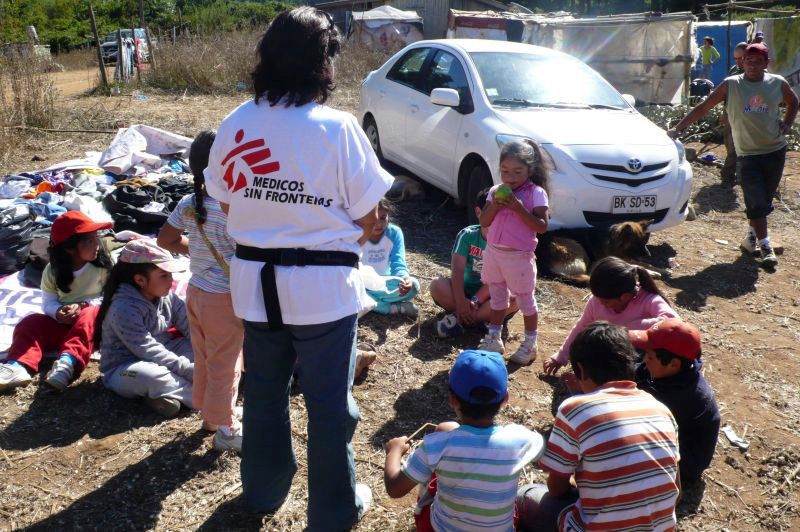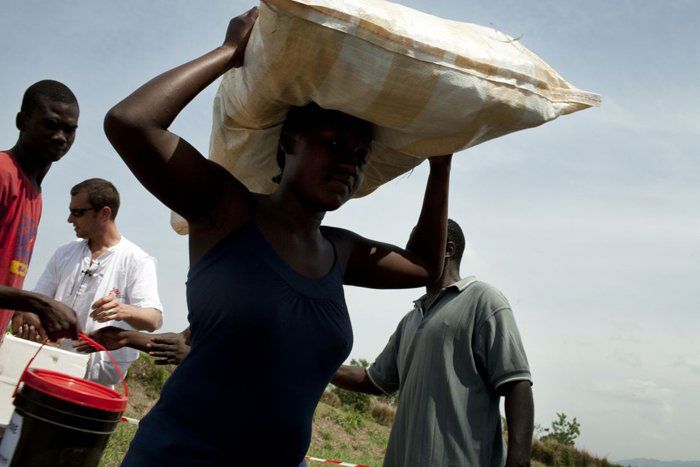The numerous tremors that followed the February 27 earthquake in
The MSF psychological team is providing direct counseling and psychosocial workshops for various groups, and debriefings for medical staff. It is also lending support to local authorities by training volunteers who will be deployed to provide mental health care in the affected areas.
It’s now been 15 days since the earthquake, but the tremors continue. Several have been powerful and have deeply impacted a population that seems relive the first quake every time a new tremor hits. María Eugenia MESA works in the
“The medical staff is particularly affected by this catastrophe, as health personnel has to manage both its own emotional distress and that of its patients,” explains Lina María PEÑARANDA, an MSF psychologist. “In the group activities that we organized, the participants were able to realize that they were not the only ones fostering these feelings, and in this way they could validate their own emotions. They can learn to regard what they lived through as an opportunity and stop seeing themselves as victims.”
A similar dynamic exists in many sectors of the population. MSF conducted psychosocial activities at a nursing home where a building had collapsed and a resident had been killed. Psychological interventions were also carried out in the camps along the coast with children, women and fishermen who reported that they were having trouble eating and sleeping and were afraid to go back into their own houses.
Another concern, especially for teachers, is how to deal with the earthquake’s psychological impact on children once the school year begins, as it will in the coming weeks. Alejandro CABELLO, a religion teacher that visited the coastal town of
Prolonged psychological stress can have serious physical implications as well. “The stress that tremors have generated in the population has also affected the physical health of patients, especially in people who suffer from conditions like epilepsy, diabetes or hypertension,” explains Dr. Franking FRÍAS, a member of the MSF medical team in
Distribution of Hygiene Kits and Medical Supplies
Though many hospitals in the affected areas were damaged, most have good response capacity and are adequately staffed. In these places, MSF medical workers are attending to some specific medical care needs, performing at-home consultations with patients who don’t want to leave their houses to visit health centers, and donating certain medical supplies to avoid any potential shortages within the health system.
Additionally, after speaking with local authorities and working with local populations to identify needs, MSF is conducting targeted distributions of hygiene kits, plastic sheeting and blankets in areas previously assessed by its staff. A man named Eugenio, who received an MSF kit, lives with his wife, his father and three small children—a nine-year-old, a three-year-old, and a one-year-old—in a house beside the road on the outskirts of Licantén. Even though his home is still standing, many rooms show cracks. The stability of the structure hasn’t yet been checked by engineering experts, so Eugenio and his family sleep in a small tent outside their house. “We get very nervous with each new tremor. The little ones keep crying,” he says.
Volunteers from the same devastated towns are helping distribute donated supplies to people who have been impacted. Most of these volunteers have been materially or psychologically affected as well; staying active can help them in the road to recovery. “It is always recommended to people in these contexts to occupy themselves with an activity or help others, so that they don’t have that much free time on their hands to get upset or think that an earthquake can happen again,” explains Peñaranda.
One can see the solidarity and collaborative spirit of the Chilean population throughout the affected areas. Along the road from



